Death Camp
Words by Dalene Heck / Photography by Pete Heck

The words “Death Camp” rolled off her tongue like any other, and were said frequently during our introduction to Auschwitz. Kasia spoke in a very even tone and met my eyes every time she said it. I wondered if she and the other guides were instructed in the manner with which to deliver the story of the largest Nazi concentration camp in Europe. I’m not sure if it was her specific accent or just my own sensitivity, but each time she said them, a shiver ran through me.
I wondered if those two words lose their meaning over time. They must – I can’t imagine performing her duties daily without dulling my sensitivity to them.
Death Camp.
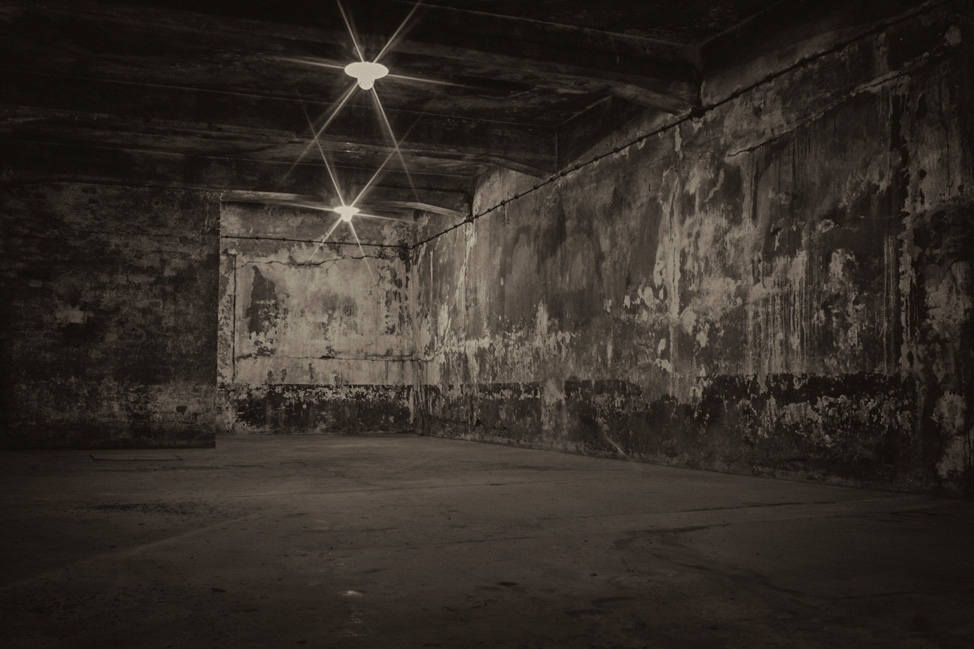
Death Camp.
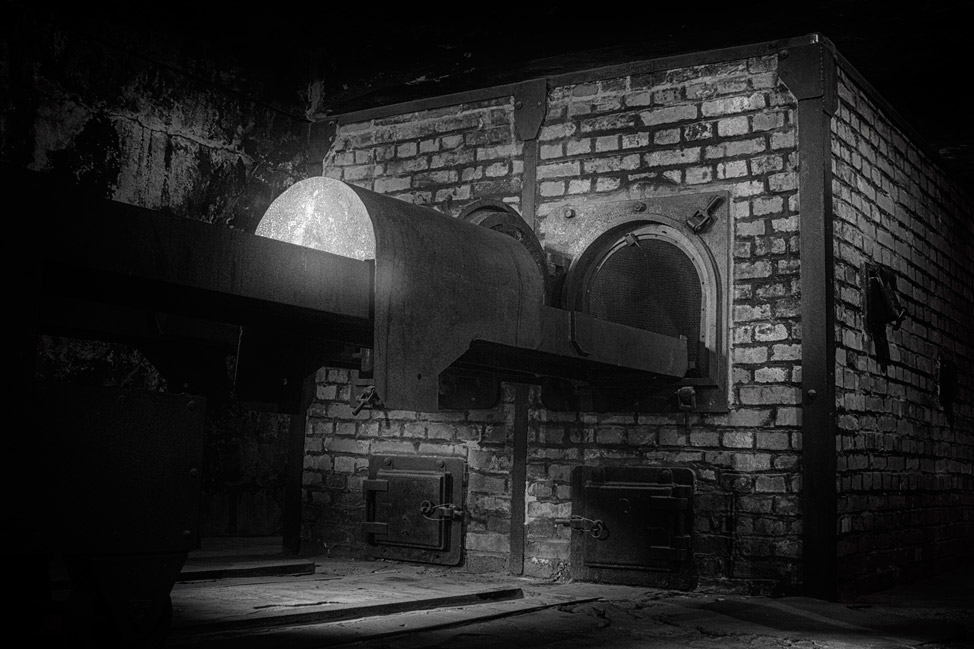
The Polish were the first to be brought to Auschwitz. They were not there for racial reasons but instead under the broad term of “resistance”: for listening to foreign radio, reading illegal leaflets, absence from work, aiding Jews. They were killed for further resistance within the camp, shot dead for minor disobedience.
No mass killing just then, that was still to come.
The Jewish would arrive two years later.
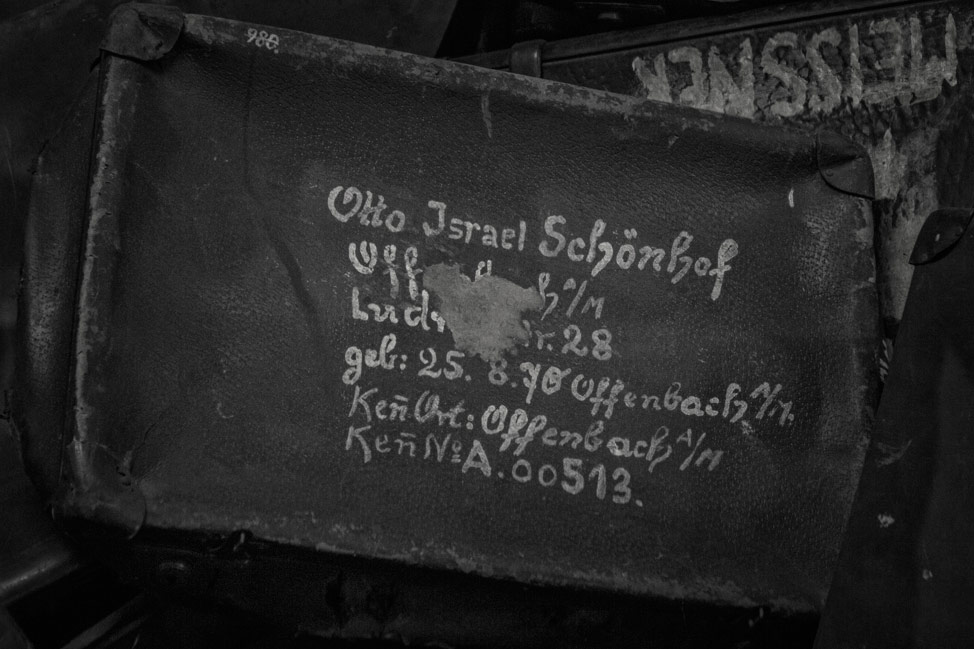
All arrivals to Auschwitz were immediately stripped of their belongings. Luggage was taken and stored in various spots which the inmates dubbed “Canada” – associating their valued personal belongings with the Klondike rushes of gold found in the west. Kasia explained as she pointed to the stacks of suitcases behind glass, that you could tell who would have immediately been taken to the gas chambers based on the markings smeared on the old cases. Hannah, for example, at only one year of age according to her suitcase, would have immediately been marched to her death. The old and infirm suffered the same immediate fate. They were no good for work, you see.
90% of children went straight to the gas chambers. A few were kept for work, and others to have medical experiments conducted on them.
A small display showed tattered clothes the tiny humans would have worn to the camp. Another showed the many, many pairs of shoes, of all sizes, left behind.
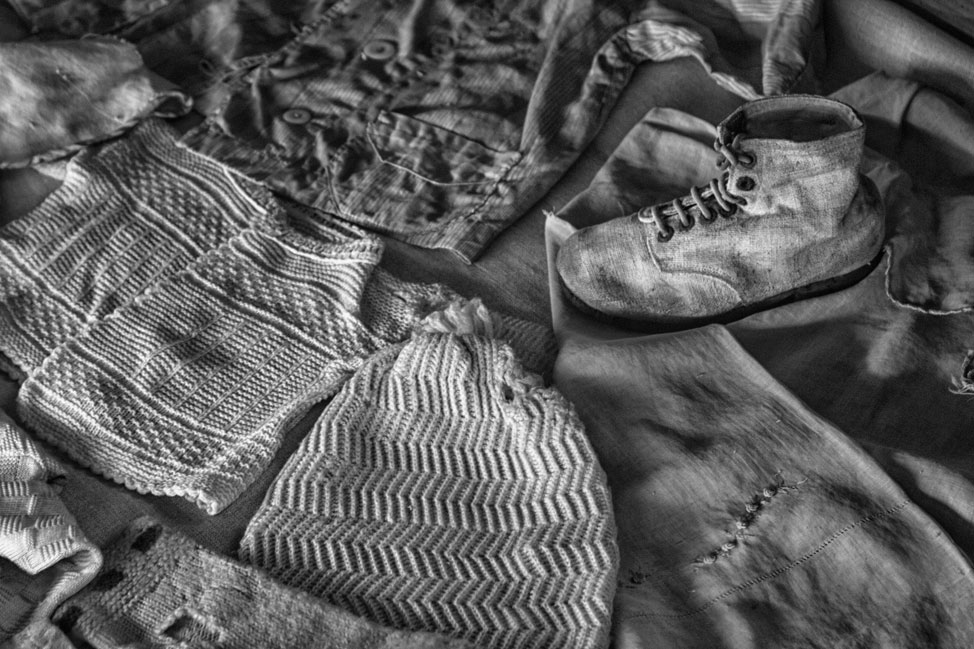
Death Camp.
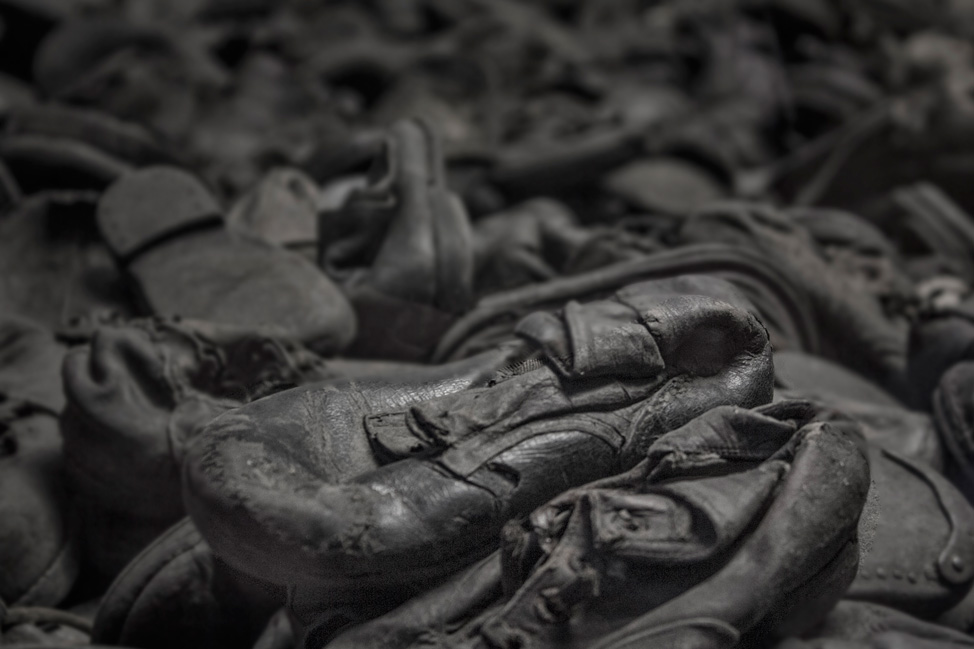
Walls throughout the blocks displayed pictures of prisoners on their arrival. At the point of their photo being taken, they would have had no idea what was waiting for them. Some showed obvious fear, others, defiance. Many were indifferent, some were even smiling. Most looked defeated.
We saw prisons within the prison. Starvation cells, suffocation cells. A standing cell, where four men were forced to crawl into and stand in a space only one square meter in size. After a long day of hard labour, they stood there and slept there. They suffocated and died there.
“It was easier to live with hope,” Kasia said at some point during our day.
I suppose she’s right. But I just don’t know.
The most disturbing part of our solemn walk through Auschwitz I (if any singular thing can earn that title), was the mounds of bundled hair that sat in a very long container of glass. The prisoners were shaved upon arrival, or if not done immediately, then one other prisoner was forced to shave their heads after they had perished in the chamber.
After 2,000 of them had been crammed in a chamber and after the excruciating twenty minutes passed following the cyanide being dropped in. When death finally won, the hair would be taken, some used to make fabric.
Up to 1.1 million bundles of hair, from 1.1 million people murdered.
****
From Auschwitz, I went to Auschwitz II – Birkenau. It is the sight most familiar, the location seen in movies. Where rows upon rows of shacks were erected to house workers, prisoners, those waiting for their turn in the gas chamber. Rail tracks split the ground, piles of rubble sat at the back, somewhat hidden amongst trees. The gas chambers and cremation ovens were blown up with dynamite on the last days before liberation, busted rocks and the semblance of a structure are all that remains.
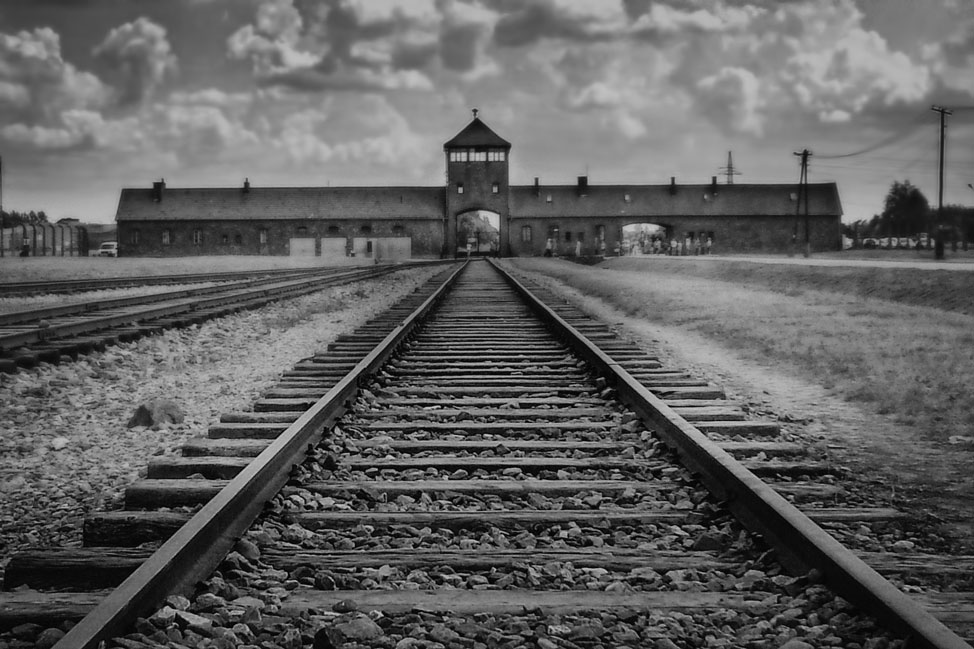
The land stretches far; it was bigger than I thought. Some of the buildings, those not rebuilt, look far newer than I imagined they would. A sober reminder that this genocide was not so long ago. Many groups from Israel walked among us, waving their country’s flag, draping it across their shoulders. Most were teenagers. One girl was overcome and gasping with tears as she walked from the women’s camp to the pits where ashes were discarded. Most others were simply chatting.
That may be the only place I’ve visited in the world where I felt glad for the buffer of a large number of tourists, grateful for a distraction from the place I was in, walking the roads that led so many others to their final formidable moments. Otherwise, it would all be too heavy, too much for this sensitive heart to take.
We drove away in silence, feeling vacant. Devoid of a piece of our own naive innocence, left behind at the Death Camp.
Our visit to Auschwitz was courtesy of the Poland Tourism Board. All opinions, as always, remain our own.

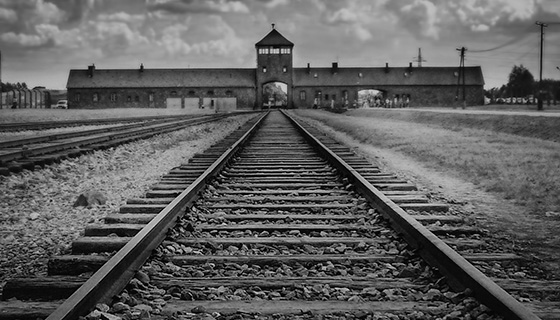
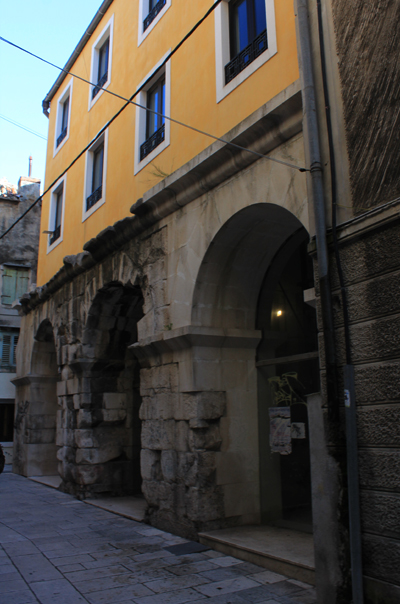
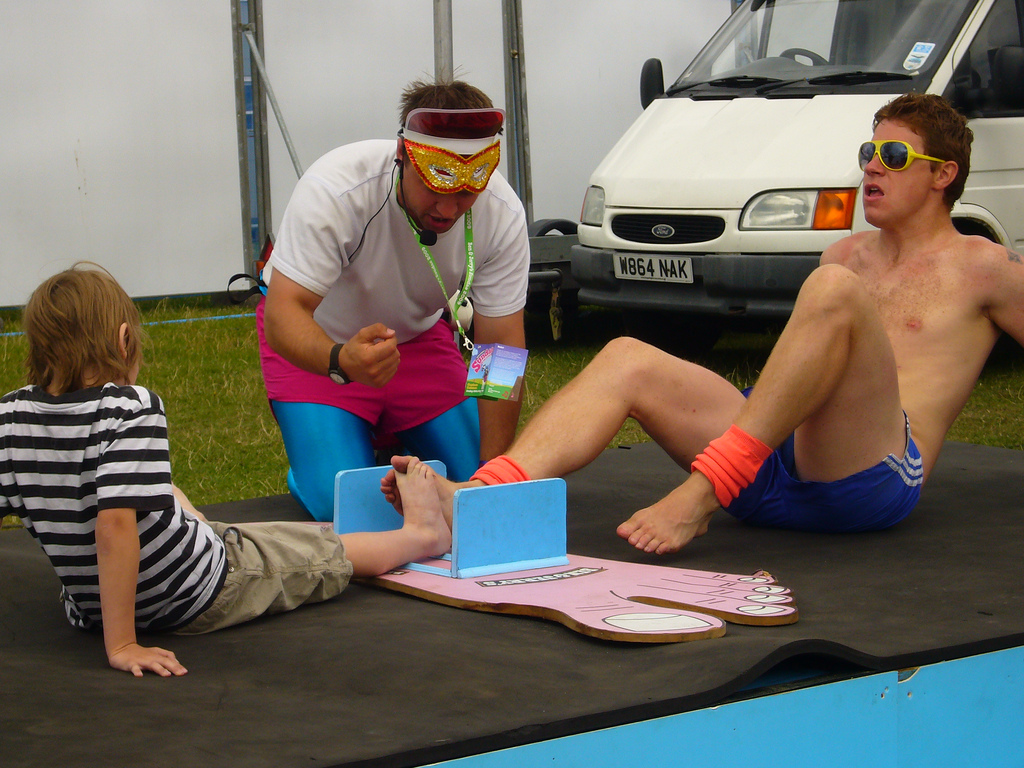
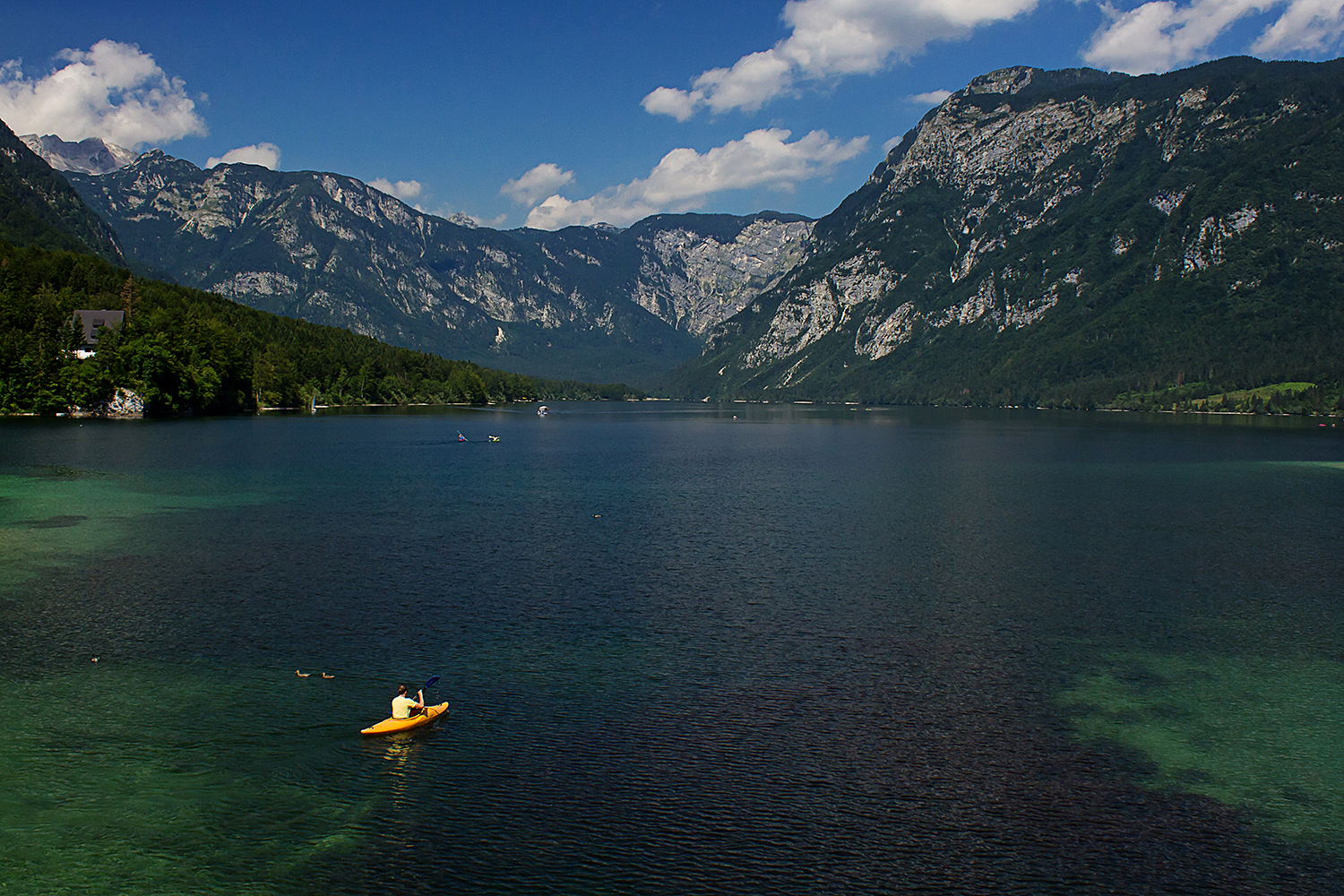
Love how respectfully and honestly you described your visit. I can imagine it would be difficult to go to a place like this and then have to write about it but this is a great post and the photos are awesome too.
Thanks Beverley – this one definitely wasn’t easy.
What a moving post. You wrote beautifully (I am not sure this is the appropriate adjective, but I don’t know of a different one in the English language that can sum it up) on a difficult subject.
I have never visited any remaining concentration camp and am not sure if I will. Nevertheless, these places constitute such an important part of history that I do believe tourism to these places can be positive for our world.
I wasn’t sure if I could visit either (I had made plans to visit Dachau and then cancelled them), but now I am glad I did. Haunted by it, but I think that is a good thing.
I don’t know if I could go here, but I would try. It’s too painful to even think about — having said that I think it’s sooo important that we NEVER forget.
I fought back tears for the first hour, and then just felt numb. I think it is affecting me more afterwards, when I think back on it.
My partner and I went to Krakow, but we couldn’t bring ourselves to visit Auschwitz. It somehow seems brave of you to go.
I’m really not sure that brave is the right word, considering the real bravery of the people who were there there so many years ago. I just think it was necessary for me to visit. I had shied away from such places for a long time, but now I’m glad I went.
I have always been interested in the history of that time and was fortunate to be able to visit Terezin near Prague with my Son. I was prepared for it but had no idea the affect it would have on me and many others with us.
I do not think I would have the courage now to visit Auschwitz.
I remember you telling me about that visit. I’m glad you guys went.
A heavy, heavy topic. But you’ve done it justice.
I’m in Berlin now and was also recently in Amsterdam. After the Anne Frank House, the Memorial to the Murdered Jews of Europe, and lots of Berlin history, I’m feeling similarly vacant and slightly overwhelmed. It is still inconceivable to me that these things could have happened.
But I suppose that’s precisely the reason that people need to visit places like this.
Exactly. And I know how you feel, there are so many museums and monuments that we visited in Poland on the topic – so many that I couldn’t write about them all. It is overwhelming.
I recently visited the Cheoung Ek Killing Fields in Cambodia, so I can understand what it is like visiting these sorts of places. They are hard to visit, but important to understand what humanity is capable of.
It is staggering to understand just that. Although I’m not sure I ever fully could.
One of the most intense experiences of my life, bar none. I couldn’t even finish the tour after I saw the torture cells. It was just too much to take.
The genocide really wasn’t that long ago and for some reason I fear it may not be impossible for another one to happen again (and it has, in some places). This thought terrifies me.
It is happening to this day. It is really terrifying.
This was a well written post about a place and topic that conjures up so many emotions. I can feel how sad and eerie this place is as you described your trip through the camp. It just seems so overwhelming, but serves a reminder of how terrible human nature can be. I hope something like this never happens again.
The sad and scary thing is that it is still happening, all over the world. Genocide is still very real. I thought of that often as we drove away – it is very heartbreaking.
Thank you for those moving and important words!
Glad you kept to black and white for the photos. It just seems a fitting way to impart what the experience of visiting Auschwitz is like. Something I’ll never forget.
Appreciate what you’ve written here.
Is the Auschwitz Death Camp free to visit and do they provide tours or audio guides or something? I know the concentration camp here outside Berlin is free and has audio guides, or you can book a tour with a tour guide and I just can’t remember what it was like in Poland.
As far as I know, during the busy summer months, it is only via guided tour (with a fee).
Thank you for this post! And I think that those words never loos their strength, no matter how many times a day you have to repeat them. Death Camp is always strong as it was at first history lesson about it.
Thanks for the powerful post. I didn’t know about the suffocation cells…god. How could humans treat other humans that way? Anyway…your pictures, done in black and white, were incredibly powerful. Thanks for sharing.
Thanks Tara – I didn’t know about that until we got there either. Terrifying.
Thanks for sharing this experience with us. Here in Belgium, some schools organise this trip for last year students (18 years old). I think it’s a good way to make sure nobody forget.
I think that’s great Fred – a tough topic to broach with teenagers, but an important one.
I have visted the Holocaust Museum in D.C. and many of your photos reminded me of the displays there. I think we all – especially those of us who love the freedom travel gives us – should visit these types of historical places to help put the world in perspective. Your use of black and white photos was great!
Chilling. Incredibly, I didn’t realize that the small children were sent to the gas chambers right away. But, of course, that’s what they would have happened in the death camps. I do want to visit Auschwitz sometime. In a way, I feel like its just the little bit I can do to acknowledge the horrors and make sure they’re not forgotten.
Impressive photos (very powerful indeed) and post.
I remember a similar feeling after I first visited Dachau, which was not nearly as large, but the longest. One of the strangest things to me was how it fit into this sweet little neighborhood. It’s very powerful to be there and feel the energy of a place like that. It’s dark, but it was an important experience in my life.
This post brought back my visit to Auschwitz like it was only yesterday. Part of me was sure that the atmosphere was going to be diluted with the throngs of tourist groups around the grounds when I was there but no, every bit of the tour was filled with emotion, sadness and poignancy. Feelings that stuck throughout my entire stay in Krakow.
You described it amazingly well…exactly as it would be experienced.
This article is so powerful; the photos so moving. What a difficult experience, one that I admit I’m not sure I could bear. Such a haunting reminder of the not-so-distant past.
What powerful photos. I haven’t been to Auschwitz yet, but Bergen-Belsen and the Holocaust museum in Israel were some of the most sobering places I’ve ever visited.
I can’t do it. I went to the Peace Museum in Hiroshima and spent the next 6 weeks crying. Major kudos to you.
I don’t know if I could go here. My occasional lapses into clinical anxiety and depression mean I soak these horrors up like a sponge and have a hard time squeezing them out.
While I don’t regret going, my visit to S21 in Cambodia had such a profound, devastating effect on me that I would find myself staring into space, feeling filled with despair and heavy from the weight of the world on my shoulders even weeks later.
And yet I do think we hold some responsibility to bear witness to the horrors of the past.
I visited Dachau when I was younger, and I’ve been to the killing fields and the school-turned-prison in Phnom Penh, and they’re all so depressing. I just can’t believe what people went through, and that someone actually thought it was acceptable to do this to others. I’m not sure I could handle Auschwitz or another similar place.
I teared up just reading this so I can only begin to imagine how you felt the entire day. This was so beautiful and haunting to read. Thank you.
Profoundly written and beautifully photographed. You describe the experience so well and it is only right that it should feel deeply disturbing to be in a place where such inconceivable atrocities occurred. One of the wonderful things about travel is the opportunity to learn about culture and history in other parts of the world and It is comforting to know that Auschwitz is being visited and that we are not forgetting the past. I like to think that bodes well for the future.
I had a similar response to Cambodia’s killing fields. It’s nearly impossible to comprehend these heinous crimes against humanity. But as painful as it may be, we must bear witness. A beautifully written and photographed piece.
Chilling. I visited Saschenhausen with a German friend who’d never been to a concentration camp, and being there in January as the only people in the whole complex was overwhelming. Your account is respectfully done, kudos.
As with the comment above from Cat, I also went to Sachsenhausen, but I can imagine that Auschwitz-Berkenau is even more intense. Your post is beautifully written and photographed; it demonstrates why we need to keep going to concentration camps, in order to ensure that society never forgets or trivialises what happened to the victims.
What an amazing piece. I agree with one of the commenters, it seems brave of you to go. The photos add to your formidable words.
There is a nice foto made from you. There are a more places where you can made more foto. I recommend to take a study tour to see Auschwitz and Birkenau because normal tour is to short and you can`t see more places like shower in Birkenau etc
Such a beautiful post for such a tragic moment in our history.
May God have mercy on those who suffered and those who caused the suffering.
It is hard to imagine a person who would not be hit by the horrible facts after the visit in any concentration/death camp museums in Germany, We did visit Dachau on a grey and rainy day, and coming back from there our feelings were mixed. We were thinking that there is no return to revisit those places but at the same time we still felt that we didn’t get enough information, because one day is not enough to go thru all the exhibitions and detailed presentations.
Overall the atmosphere was not depressing but devastating, to see IRL all the horrors you have been reading about. Still, everyone should go and see it. Prepare yourself and be humble.
congrats on your post dalene, just came across your blog!.I have been there and reading your words reminded me of many feelings of one of the saddest stories I found while being on the road for months. I felt so touched that I was even feeling disrepectful while taking pictures of a place showing such a tragedy, but your post today reminded me of how you can tell a story with deep respect and excellent documentation of it. from an argentinean traveller based in spain to another one,keep going! and will be reading you more ofter for sure! saludos! 🙂